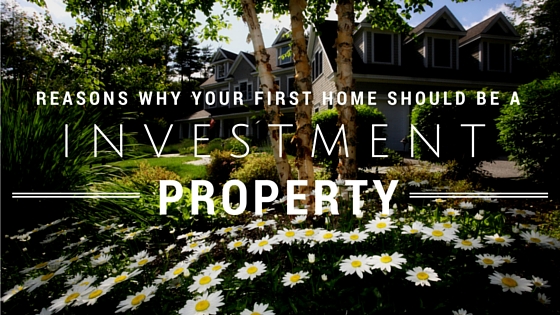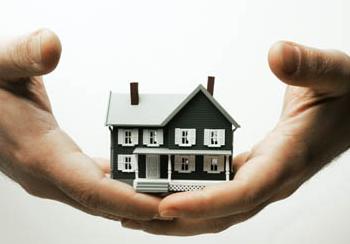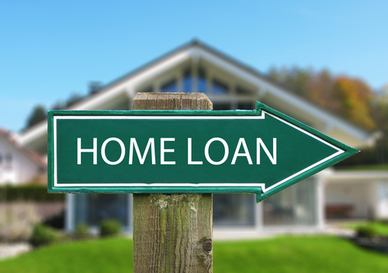If you’re young and you’re looking to purchase a new home to live in, maybe you should consider turning your first home into an investment property. While most people wait until after they’ve bought their first or second home to begin investing in real estate, you could start much sooner than you think. We’ll explain why jumping into the real estate investing game might be a good idea.
If you’re young and you’re looking to purchase a new home to live in, maybe you should consider turning your first home into an investment property. While most people wait until after they’ve bought their first or second home to begin investing in real estate, you could start much sooner than you think. We’ll explain why jumping into the real estate investing game might be a good idea.
If you’re young and you’re looking to purchase a new home to live in, maybe you should consider turning your first home into an investment property. While most people wait until after they’ve bought their first or second home to begin investing in real estate, you could start much sooner than you think. We’ll explain why jumping into the real estate investing game might be a good idea.

By turning your home into an investment property, you can leverage your less than perfect credit, less than perfect lifestyle and limited responsibilities into an investment. All it takes is a little bit of smarts and real estate shrewdness.
The idea of making your first home an investment goes against the general notions of personal finance. In fact it goes against how most people approach post-college life. The typical financial timeline for your average American adult might look like this:
There’s nothing wrong with following that timeline, since it can give you plenty of time to build credit, save money and enjoy being young. But if you’re a 22-year-old college graduate with a solid job (good for you), waiting until you’re well into your 30s or 40s to start investing might not be wise.
Here’s are five reasons why you should entertain the idea of investing in real estate while you’re still young.
1. You’re Young
Being young and independent can be pretty amazing. You can make your own rules, live where you want, buy what you want and travel whenever you want. But that can get old pretty quickly, especially if you have other goals in mind.
All the money you’re currently spending “living the life” while living in a crappy apartment could be spent on something else. Saving money and building credit aren’t impossible and they’re part of what you’ll need to qualify for a mortgage loan (more on that below). Your current lifestyle might actually allow you to cut costs in a way that might not be possible later in life when you have larger obligations.
If you can learn how to effectively manage your money, you can come up with enough cash for a down payment.
2. Real Estate Is Cheap
According to recent reports from National Association of Realtors home prices are on the rise. However, most real estate markets present many bargains to potential buyers in the form of distressed sales. Distressed sales are homes or properties that have usually been foreclosed on that the bank is willing to sell at a loss in order to clear its books. These distressed sales also help drive down the cost of all properties in the area.
There are plenty of distressed homes for sale. Buying one would allow you to own an investment for significantly less than market value, especially as prices begin to rise. Before buying any property, however, it’s important to make sure you purchase a house that you can afford.
Find out now: How much house can I afford?
3. You’ll Have Another Source of Income
If you are purchasing a property that you plan to rent out, you’ll be able to profit off your investment as soon as you find tenants. Then you can take the money you earn and reinvest it in your property or use it to pay off other bills and debts.
4. FHA Loans
Industry standards say that you’re required to put at least 20% down when buying a house. But if you can’t afford to pay that much, you might be able to purchase an investment property with much less than that by getting an FHA loan.
FHA loans give people who don’t have the greatest credit the chance to become homeowners. If you decide that investing is for you, an FHA loan could be the perfect way to finance the purchase. There is one catch, however, FHA loans require that you live in the property you seek to purchase. To get around that rule, you can purchase a property with up to four rental units and make one unit your primary residence.
The idea of making your first home an investment goes against the general notions of personal finance. In fact it goes against how most people approach post-college life. The typical financial timeline for your average American adult might look like this:
- College
- First Job
- First rental
- Second/third rental
- Marriage
- Starter Home
- Children
- Second Home
- Education
- Investments
There’s nothing wrong with following that timeline, since it can give you plenty of time to build credit, save money and enjoy being young. But if you’re a 22-year-old college graduate with a solid job (good for you), waiting until you’re well into your 30s or 40s to start investing might not be wise.
Here’s are five reasons why you should entertain the idea of investing in real estate while you’re still young.
1. You’re Young
Being young and independent can be pretty amazing. You can make your own rules, live where you want, buy what you want and travel whenever you want. But that can get old pretty quickly, especially if you have other goals in mind.
All the money you’re currently spending “living the life” while living in a crappy apartment could be spent on something else. Saving money and building credit aren’t impossible and they’re part of what you’ll need to qualify for a mortgage loan (more on that below). Your current lifestyle might actually allow you to cut costs in a way that might not be possible later in life when you have larger obligations.
If you can learn how to effectively manage your money, you can come up with enough cash for a down payment.
2. Real Estate Is Cheap
According to recent reports from National Association of Realtors home prices are on the rise. However, most real estate markets present many bargains to potential buyers in the form of distressed sales. Distressed sales are homes or properties that have usually been foreclosed on that the bank is willing to sell at a loss in order to clear its books. These distressed sales also help drive down the cost of all properties in the area.
There are plenty of distressed homes for sale. Buying one would allow you to own an investment for significantly less than market value, especially as prices begin to rise. Before buying any property, however, it’s important to make sure you purchase a house that you can afford.
Find out now: How much house can I afford?
3. You’ll Have Another Source of Income
If you are purchasing a property that you plan to rent out, you’ll be able to profit off your investment as soon as you find tenants. Then you can take the money you earn and reinvest it in your property or use it to pay off other bills and debts.
4. FHA Loans
Industry standards say that you’re required to put at least 20% down when buying a house. But if you can’t afford to pay that much, you might be able to purchase an investment property with much less than that by getting an FHA loan.
FHA loans give people who don’t have the greatest credit the chance to become homeowners. If you decide that investing is for you, an FHA loan could be the perfect way to finance the purchase. There is one catch, however, FHA loans require that you live in the property you seek to purchase. To get around that rule, you can purchase a property with up to four rental units and make one unit your primary residence.
5. Changing Demographics
According to a report produced by the Research Institute for Housing America, homeownership among immigrants nationwide is expected to account for 36% of housing growth over the next decade. This is due in large part, according to the report, to the strong desires among immigrants to become homeowners.
As more individuals and families move to become homeowners, property owners have more of an opportunity to capitalize on that shift. Would you want to miss out on the opportunity to own property in a neighborhood that is set to see values skyrocket? Your future self probably wouldn’t.
According to a report produced by the Research Institute for Housing America, homeownership among immigrants nationwide is expected to account for 36% of housing growth over the next decade. This is due in large part, according to the report, to the strong desires among immigrants to become homeowners.
As more individuals and families move to become homeowners, property owners have more of an opportunity to capitalize on that shift. Would you want to miss out on the opportunity to own property in a neighborhood that is set to see values skyrocket? Your future self probably wouldn’t.
Curated From: Smart Asset



